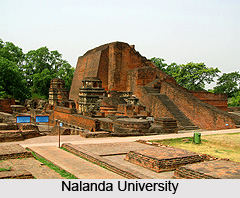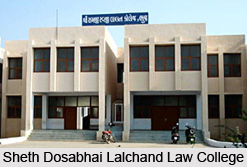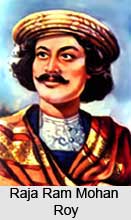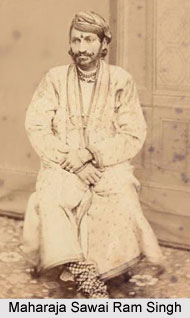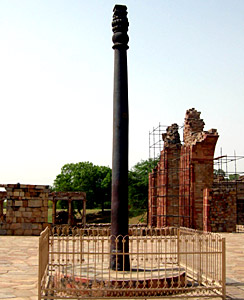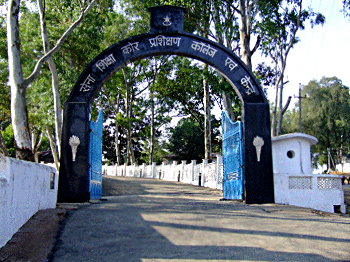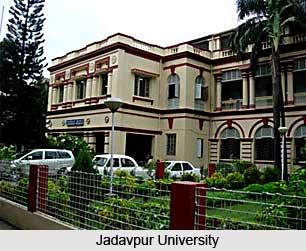 Graduate Aptitude Test in Engineering (GATE) is a highly competitive, all-India examination that is administered and jointly organized by the Indian Institute of Science and seven Indian Institutes of Technology (IITs) in rotation. It is conducted on behalf of the National Coordinating Board - GATE, Department of Education, Government of India under the Ministry of Human Resource Development (MHRD). GATE is an annual test required for getting admission to various graduate programs at the masters degree level and the Doctorate level in most of the prominent engineering institutes of India like the Indian Institute of Science Bangalore, IITs and NITs, Jadavpur University, Kolkata, IT-BHU and other prestigious pharmacy institutes. The entire pattern and the syllabus are generally based on the prospective candidate`s background.
Graduate Aptitude Test in Engineering (GATE) is a highly competitive, all-India examination that is administered and jointly organized by the Indian Institute of Science and seven Indian Institutes of Technology (IITs) in rotation. It is conducted on behalf of the National Coordinating Board - GATE, Department of Education, Government of India under the Ministry of Human Resource Development (MHRD). GATE is an annual test required for getting admission to various graduate programs at the masters degree level and the Doctorate level in most of the prominent engineering institutes of India like the Indian Institute of Science Bangalore, IITs and NITs, Jadavpur University, Kolkata, IT-BHU and other prestigious pharmacy institutes. The entire pattern and the syllabus are generally based on the prospective candidate`s background.
In simple words, admissions to postgraduate courses with Ministry of Human Resource Development and for receiving other government scholarship at the prominent engineering institutes of the country are open to those candidates who qualify through the mode of GATE. The qualified candidates with Bachelor`s degree in Technology/ Engineering/Architecture or Pharmacy or a Master`s degree in any stream of Science/Mathematics/Computer Applications or Statistics are eligible for the Master/Doctoral programmes in relevant branches of Science stream. Some of the institutions clearly mention that qualifying GATE is the obligatory qualification. Moreover, candidates who have cleared GATE are eligible for the Junior Research Fellowship awards. And in some of the government organizations, it remains specified that GATE qualification is mandatory for applying to the post of Engineer or Scientist.
Application forms
The interested candidates can apply either online or offline. Students need to pay a certain amount as the registration fee, which is not refundable. In the online mode of filling up the application form, the candidates need to fill an online application on the Internet and they need to submit the application along with the online fee payment. Students can also obtain the application form from certain designated bank branches on the payment of certain amount. Completed application forms need to be submitted along with the original pay- in- slip and other documents as applicable. All the details associated with the start of sale and last submission date of the forms come in the major newspapers of the country.
Eligibility Criteria for GATE Exam
The minimum eligibility criterion for appearing in Graduate Aptitude Test in Engineering (GATE) is a Bachelor`s degree in Engineering (4 years University Degree) or a Master`s degree in Science. Those candidates, who are in the final or pre-final year of such programmes, can also apply.
Courses offered
• M. Tech
Pattern of examination
The examination paper of GATE comprises single paper and that is of 3 hours duration. It contains 60 questions carrying a total of 100 marks. The questions are only multiple choice objective types. Each and every single question will have four choices, out of which the candidates need to search for the answer. Candidates need to mark the correct option by darkening the appropriate ball on an Optical Response Sheet (ORS). There is the system of negative marking.
The papers for Graduate Aptitude Test in Engineering (GATE) are as follows -
• Aerospace Engineering
• Information Technology
• Agricultural Engineering
• Mathematics
• Architecture and Planning
• Mechanical Engineering
• Civil Engineering
• Mining Engineering
• Chemical Engineering
• Metallurgical Engineering
• Computer Science and Engineering
• Physics
• Chemistry
• Production and Industrial Engineering
• Electronics and Communication Engineering
• Pharmaceutical Sciences
• Electrical Engineering
• Textile Engineering and Fibre Science
• Geology and Geophysics
• Engineering Sciences
• Instrumentation Engineering
• Life Sciences
Selection process
Most of the institutes do not mention their cut-offs percentage for previous years. The total marks for this entrance exam is 150 marks. Candidates are judged on the basis of the total marks obtained in the all the three sections.
Graduate Aptitude Test in Engineering (GATE) actually serves as a compulsory qualification for the scholarship and fellowship programmes of MHRD.
